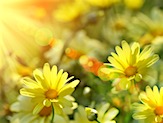I'm posting to share some information I put together for a client, who asked me on June 2 what drove people to react as they did to the killing of George Floyd. As I told her, it's a big complex issue with no quick answer. I compiled a list of books and podcasts, as well as some briefer videos that are quick to watch and very informative and eloquent.
Videos and Articles:
Brief (5 minute) video helpful for understanding systemic racism and implicit bias:
https://youtu.be/YrHIQIO_bdQ This short article in the Psychology Today blog “Culturally Speaking” by
Monnica T Williams Ph.D. explains why using a racial colorblind approach, which allows us to deny uncomfortable cultural differences, is actually problematic:
https://www.psychologytoday.com/us/blog/culturally-speaking/201112/colorblind-ideology-is-form-racism.
Trevor Noah, host of The Daily Show (during COVID pandemic being called “The Daily Social Distancing Show”) shared insights about George Floyd, Minneapolis Protests, Ahmaud Arbery & Amy Cooper in this 18-minute video released on May 29, 2020:
https://www.youtube.com/watch?v=v4amCfVbA_c Activist, author, and filmmaker Kimberly Jones gave a powerful, eloquent, 7-minute speech, in which she explains in detail why this is happening (racism across 450 years) and the difference between protesting, rioting and looting in 2020. Fellow filmmaker David Jones captured her speech in the video “How Can We Win” which premiered June 1, 2020 and went viral. You can watch it here: https://www.youtube.com/watch?v=sb9_qGOa9Go And you can watch this 12-minute interview of Kimberly Jones by Trevor Noah, released on June 19, 2020: https://www.youtube.com/watch?v=U1k9APedIUY&t=603s. In this video, Kimberly Jones unpacks her emotional viral video on the state of race in America, the injustices Black people face beyond the headlines, and her novel “I’m Not Dying with You Tonight.”
Books:
White Fragility: Why It’s So Hard for White People to Talk About Racism, by Robin DiAngelo.
https://robindiangelo.com/publications/ has a free downloadable Reader’s Guide.
Stamped from the Beginning: The Definitive History of Racist Ideas in America, by Ibram X. Kendi.
https://www.ibramxkendi.com/stamped.
How to be an Anti-Racist, by Ibram X. Kendi.
https://www.ibramxkendi.com/how-to-be-an-antiracist has a free downloadable Discussion Guide.
Podcasts:
“1619” is a 5-episode audio series from the New York Times that examines the long shadow of American slavery; how slavery has transformed America, connecting past and present through the oldest form of storytelling. Can listen to the episodes and read the transcripts at the website:
https://www.nytimes.com/2020/01/23/podcasts/1619-podcast.html or use podcast app on your smart phone to listen to the episodes.
“White Lies” is a 7-episode audio series from NPR:
https://www.npr.org/podcasts/510343/white-lies. Description from that website: “In 1965, Rev. James Reeb was murdered in Selma, Alabama. Three men were tried and acquitted, but no one was ever held to account. Fifty years later, two journalists from Alabama return to the city where it happened, expose the lies that kept the murder from being solved and uncover a story about guilt and memory that says as much about America today as it does about the past.”
“Scene on Radio” is the Peabody-nominated podcast from the Center for Documentary Studies at Duke University, at
https://www.sceneonradio.org/.
- Season 2, “Seeing White” Just what is going on with white people? Police shootings of unarmed African Americans. Acts of domestic terrorism by white supremacists. The renewed embrace of raw, undisguised white-identity politics. Unending racial inequity in schools, housing, criminal justice, and hiring. Some of this feels new, but in truth it’s an old story. Why? Where did the notion of “whiteness” come from? What does it mean? What is whiteness for? Scene on Radio host and producer John Biewen took a deep dive into these questions, along with an array of leading scholars and regular guest Dr. Chenjerai Kumanyika, in this fourteen-part documentary series, released between February and August 2017. The series editor is Loretta Williams.
- Season 3, “Men” What’s up with this male-dominated world? How did we get sexism, patriarchy, misogyny in the first place? How can we get better at seeing it, and what can we do about it? Co-hosts John Biewen and Celeste Headlee explore those questions and more.
- Season 4, “The land that never has been yet” As the 2020 election approaches, the survival of the United States as a democratic republic is a topic of national conversation—Trumpian authoritarianism; voter suppression and gerrymandering; concerns about foreign intervention, election security, and the role of money in politics. Our twelve-part Season 4 series on democracy touches on those concerns but goes much deeper, effectively retelling the story of the United States from its beginnings up to the present as we complicate, maybe upend, our listeners’ understanding of American history. Our series title, The Land That Never Has Been Yet, is borrowed from the Langston Hughes poem, “Let America Be America Again.” The Land reunites the Seeing White series team: host and producer John Biewen with his collaborator Chenjerai Kumanyika, journalism and media studies professor at Rutgers University, and their editor, the public radio veteran Loretta Williams.
“Code Switch” from NPR, at
https://www.npr.org/podcasts/510312/codeswitch. From the website: “What's CODE SWITCH? It's the fearless conversations about race that you've been waiting for! Hosted by journalists of color, our podcast tackles the subject of race head-on. We explore how it impacts every part of society — from politics and pop culture to history, sports and everything in between. This podcast makes ALL OF US part of the conversation — because we're all part of the story.”


